本站不再支持您的浏览器,360、sogou等浏览器请切换到极速模式,或升级您的浏览器到 更高版本!以获得更好的观看效果。关闭

News & Events
From November 2 to 3, 2024, the “Beijing International Conference on the Philosophy of Normativity” was held in Beijing, jointly organized by the Center for Studies of Values and Culture at Beijing Normal University, the School of Philosophy at Beijing Normal University, the International Research Center for Analytic Philosophy at Beijing Normal University, the Chinese Wittgenstein Society, and the International Academic Exchange Working Committee of the Chinese Society for Dialectics of Nature. Nearly a hundred experts and scholars from over 40 domestic and international universities and research institutions, including Beijing Normal University, Peking University, Tsinghua University, Wuhan University, the University of Hong Kong, University of Oxford, University of California, Berkeley, University of Southern California, University of Pittsburgh, and University College London, gathered to engage in in-depth discussions on topics related to the philosophy of normativity.
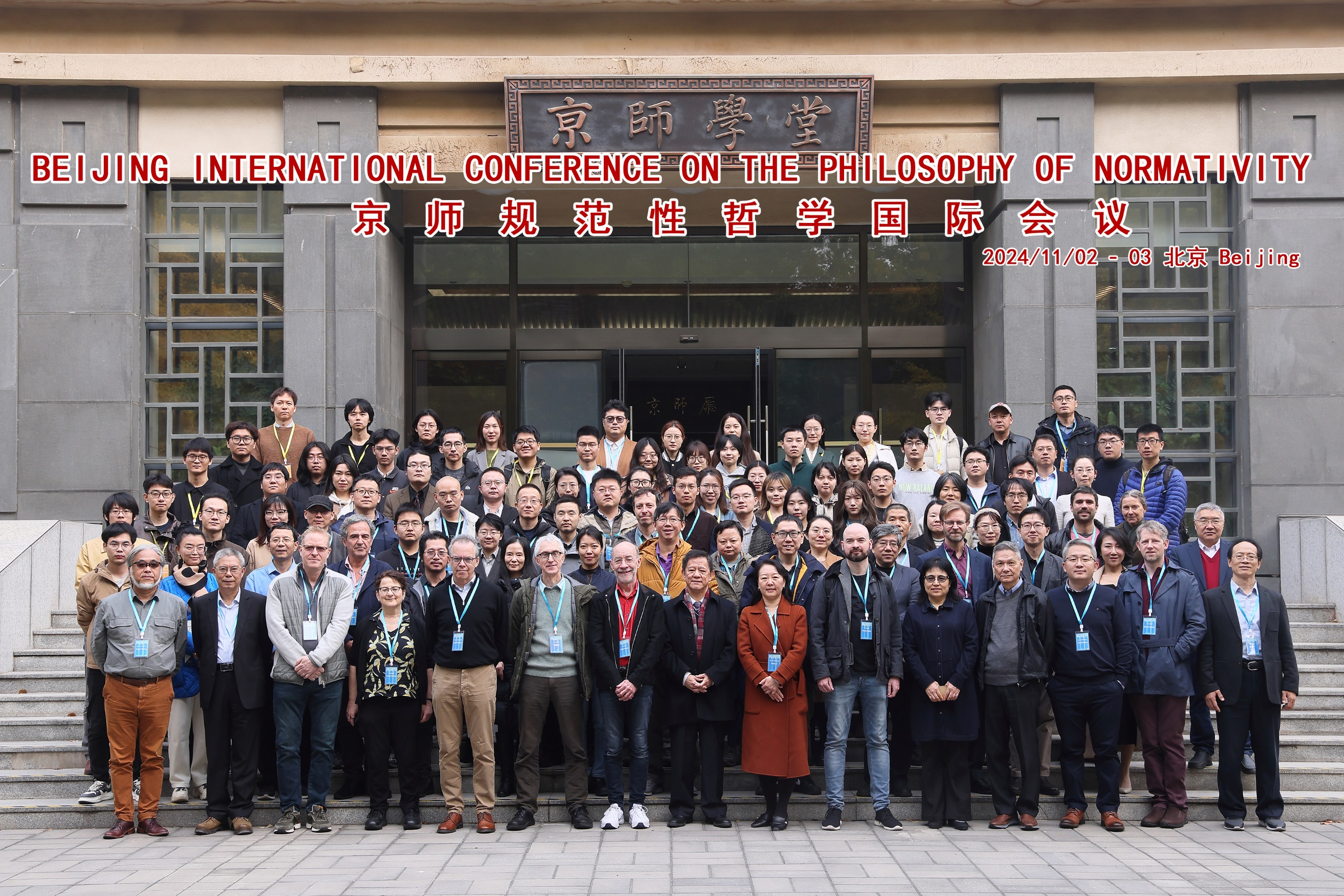
(Group photo of attending scholars)
Professor Wu Xiangdong, Director of the Center for Studies of Values and Culture at Beijing Normal University and Dean of the School of Philosophy at Beijing Normal University, delivered the opening speech at the conference, extending a warm welcome to the attending scholars. He provided a detailed introduction to the development of the Center for Value and Culture Studies, the School of Philosophy, and the historical evolution of the subject of philosophy at Beijing Normal University. Professor Wu particularly emphasized that the issue of normativity is an area long cultivated and actively advanced by both the Center for Value and Culture Studies and the School of Philosophy, expressing his hope that this conference would further promote reflection on normative problems and contribute to the development of the philosophy of normativity.
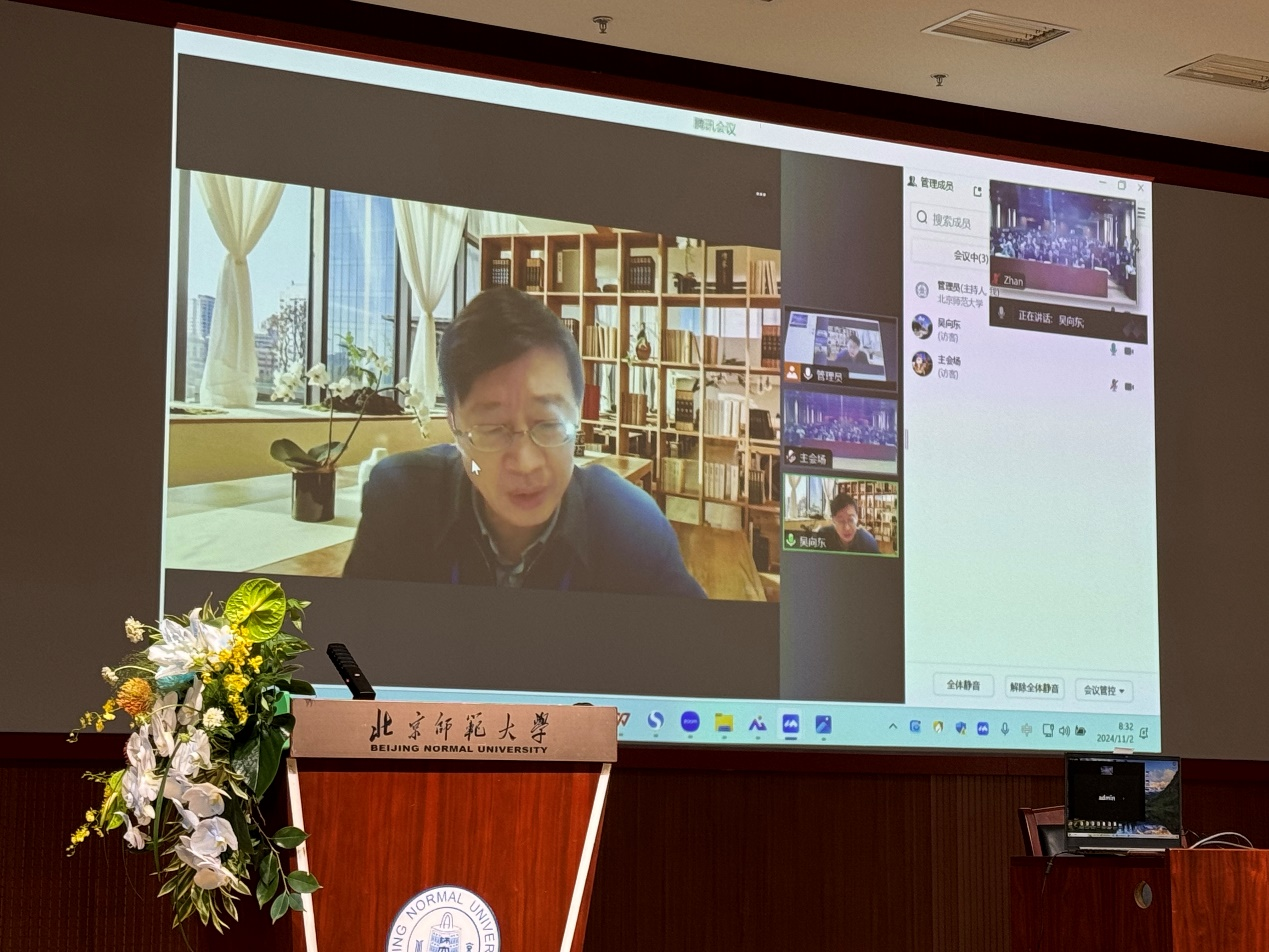
(Wu Xiangdong, Director of the Center for Studies of Values and Culture at Beijing Normal University and Dean of the School of Philosophy at Beijing Normal University, delivered the opening speech)
Professor Li Hong from the School of Philosophy at Beijing Normal University presented an overview of the major program “Studies in the philosophy of normativity” supported by the National Social Science Fund of China. She emphasized that normativity constitutes a fundamental and irreducible philosophical “meta-concept,” elaborated on the paradigm shifts within the philosophy of normativity, and highlighted key issues requiring focused attention in contemporary research. It is anticipated that this conference will establish a platform for dialogue and reflection, thereby promoting the development of the philosophy of normativity as a new interdisciplinary research field and sub-discipline within philosophical studies.
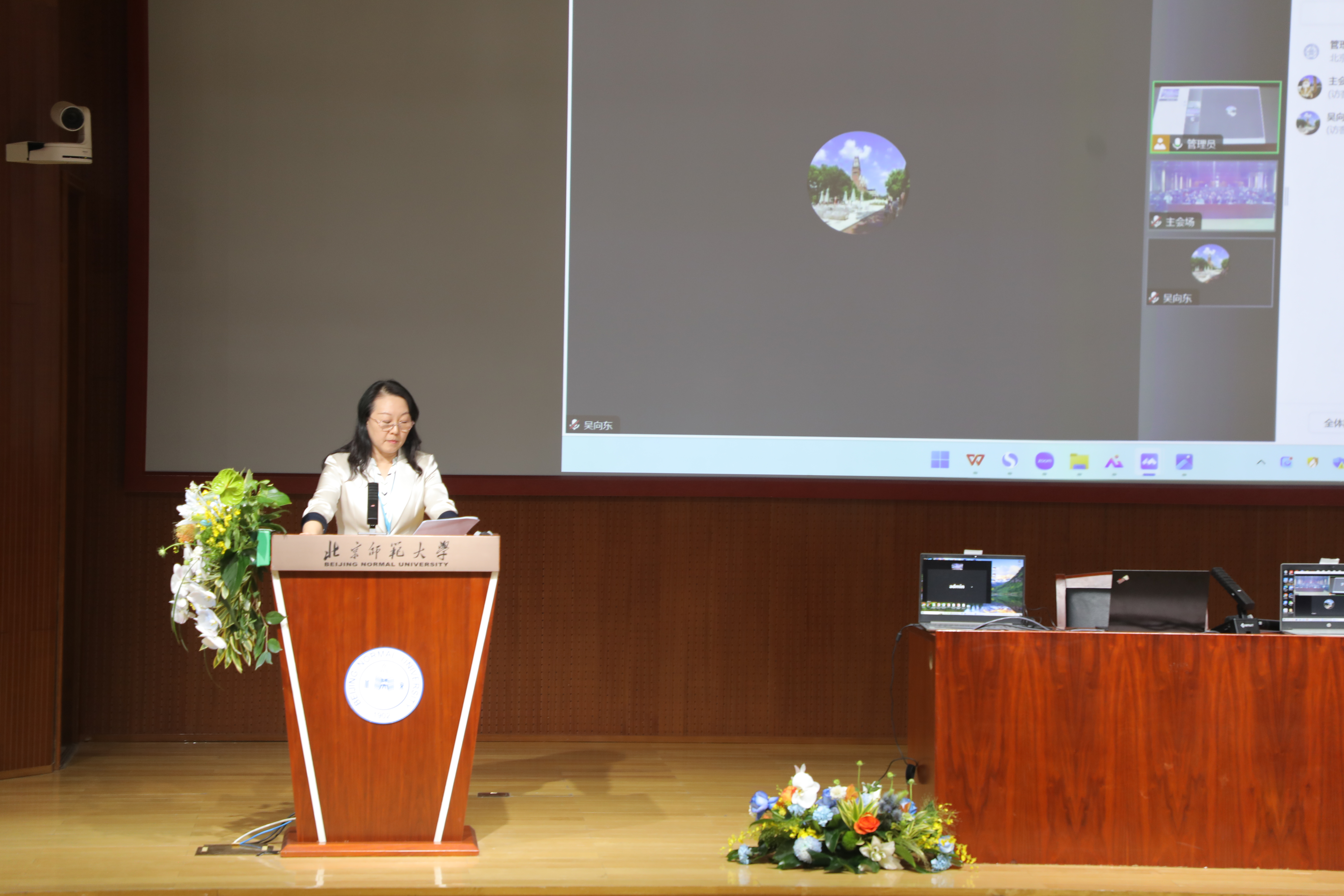
(Professor Li Hong from the School of Philosophy at Beijing Normal University introduces the major program “Studies in the philosophy of normativity” from Beijing Normal University)
The conference was structured into keynote presentations and thematic presentations. The keynote presentations focused on frontier issues in the philosophy of normativity. Professor Robert Brandom from the University of Pittsburgh delivered a presentation titled “Normativity and Freedom.” He began by elaborating on the fundamental philosophical ideas of German Idealism, emphasizing Kant’s discovery of the essentially normative character of intentionality, and explained how Kant derived this insight through the concept of autonomy. Subsequently, Professor Brandom pointed out that Hegel further developed Kant’s ideas by arguing that normative statuses serve as the foundation of social statuses and are established through attitudes of mutual recognition. Finally, he discussed a specific linguistic paradigm—namely, freedom constituted by normative constraints.
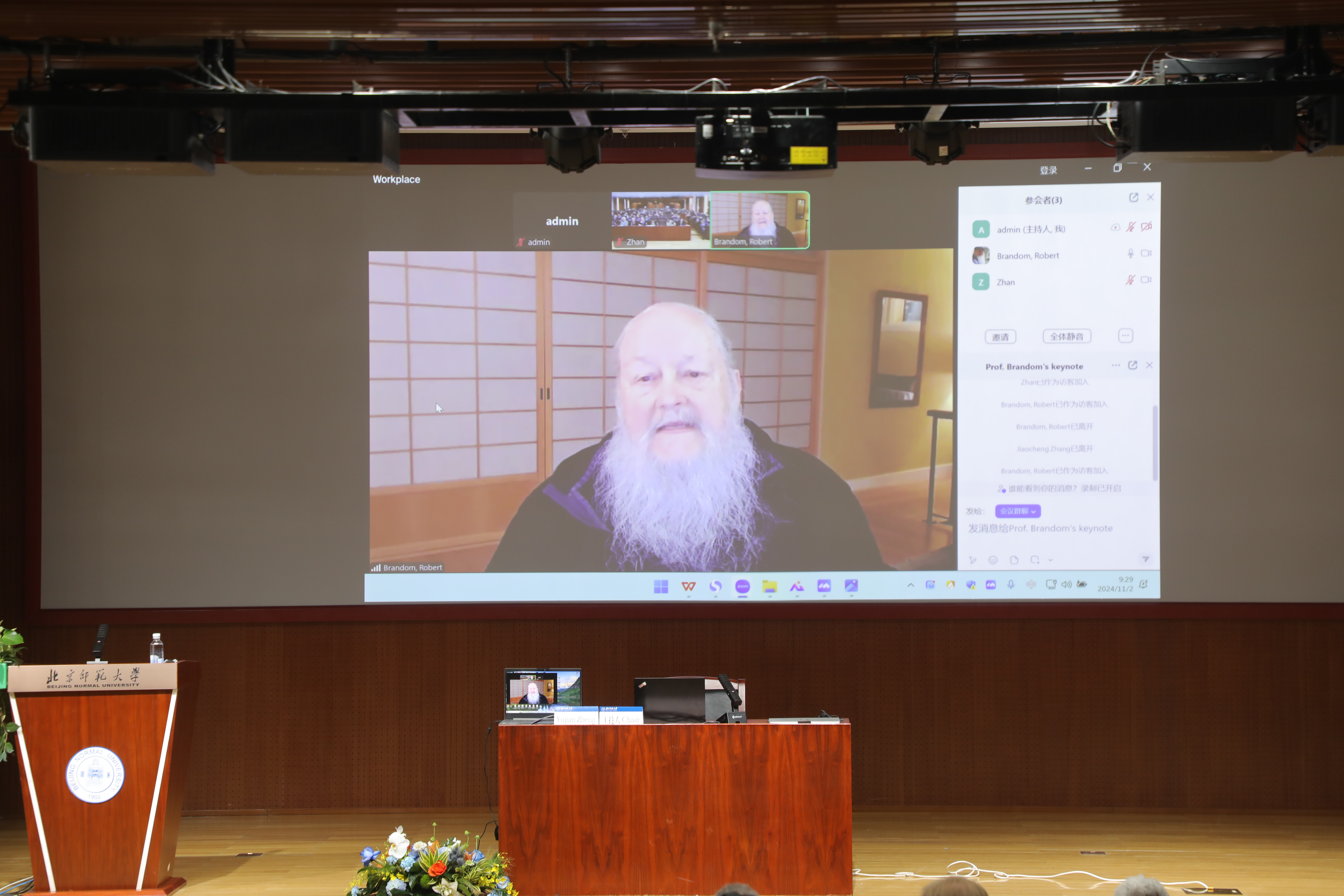
(Professor Robert Brandom from the University of Pittsburgh delivered a keynote presentation)
Professor Jiang Yi from Shanxi University delivered a presentation titled “Charles S. Peirce and the Normative Sciences.” Based on Peirce’s concept of “normative science,” Professor Jiang discussed the relationships among “norms,” “normative science,” and “normativity,” emphasizing that Peirce’s notion of “normative science” cannot be equated with “norms” nor with the “science of normativity” as discussed by contemporary philosophers. Finally, Professor Jiang categorized the philosophy of normativity into five types based on the concept of the “science of normativity”: normative ontology, normative semantics, normative epistemology, normative psychology, and substantive normative theory.
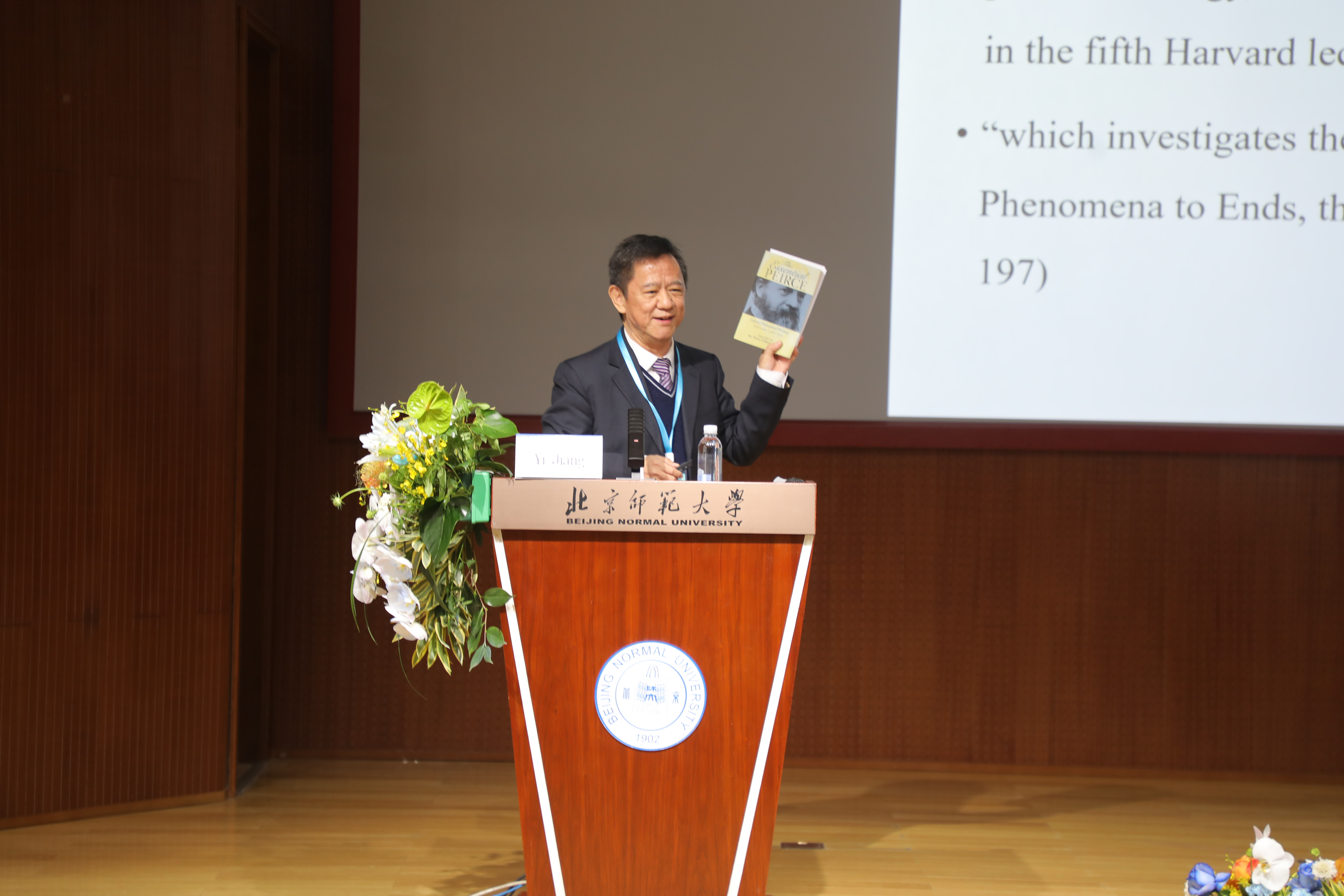
(Professor Jiang Yi from Shanxi University delivered a keynote presentation)
Professor Hannah Ginsborg from the University of California, Berkeley delivered a presentation titled “Normativity Without Reasons.” She first argued that the phenomena covered by "normative" and its cognate terms are broader than those emphasized by proponents of “reasons.” Subsequently, focusing on young children’s capacities for imitation and categorization, she proposed the concept of “primitive normativity,” contending that even when limiting normativity to what philosophers consider “genuinely significant,” primitive normativity is also more suitable for understanding “genuinely significant” normativity than the concept of “reasons.” Consequently, Professor Ginsborg concluded that normativity should not be fundamentally understood through the concept of “reasons.”
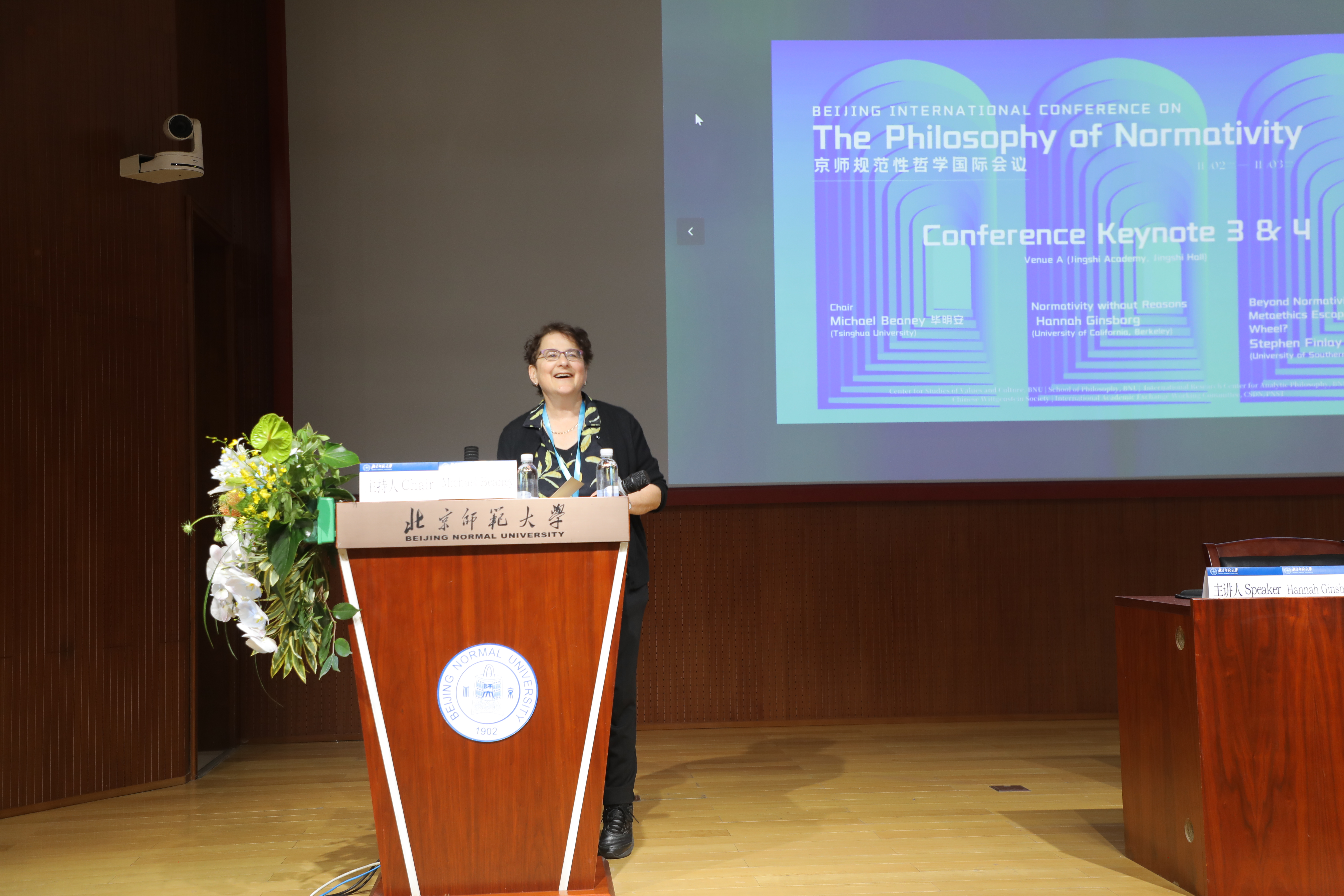
(Professor Hannah Ginsborg from the University of California, Berkeley delivered a keynote presentation)
Professor Stephen Finlay from the University of Southern California delivered a presentation titled “Beyond Normativity: Can Metaethics Escape Samsara’s Wheel?” He argued that metaethics continually introduces new terminology merely to reiterate similar debates without making substantive progress on the issues at hand, thus trapped in a futile cycle. Professor Finlay proposed a perspectival diagnosis, suggesting that normative thought combines both content and motivational dimensions. How different theorists interpret “robust normativity” depends entirely on the perspective they adopt regarding the integration of these two dimensions. Only by recognizing this, he contended, can theorists break free from this cycle and advance the study of normativity.
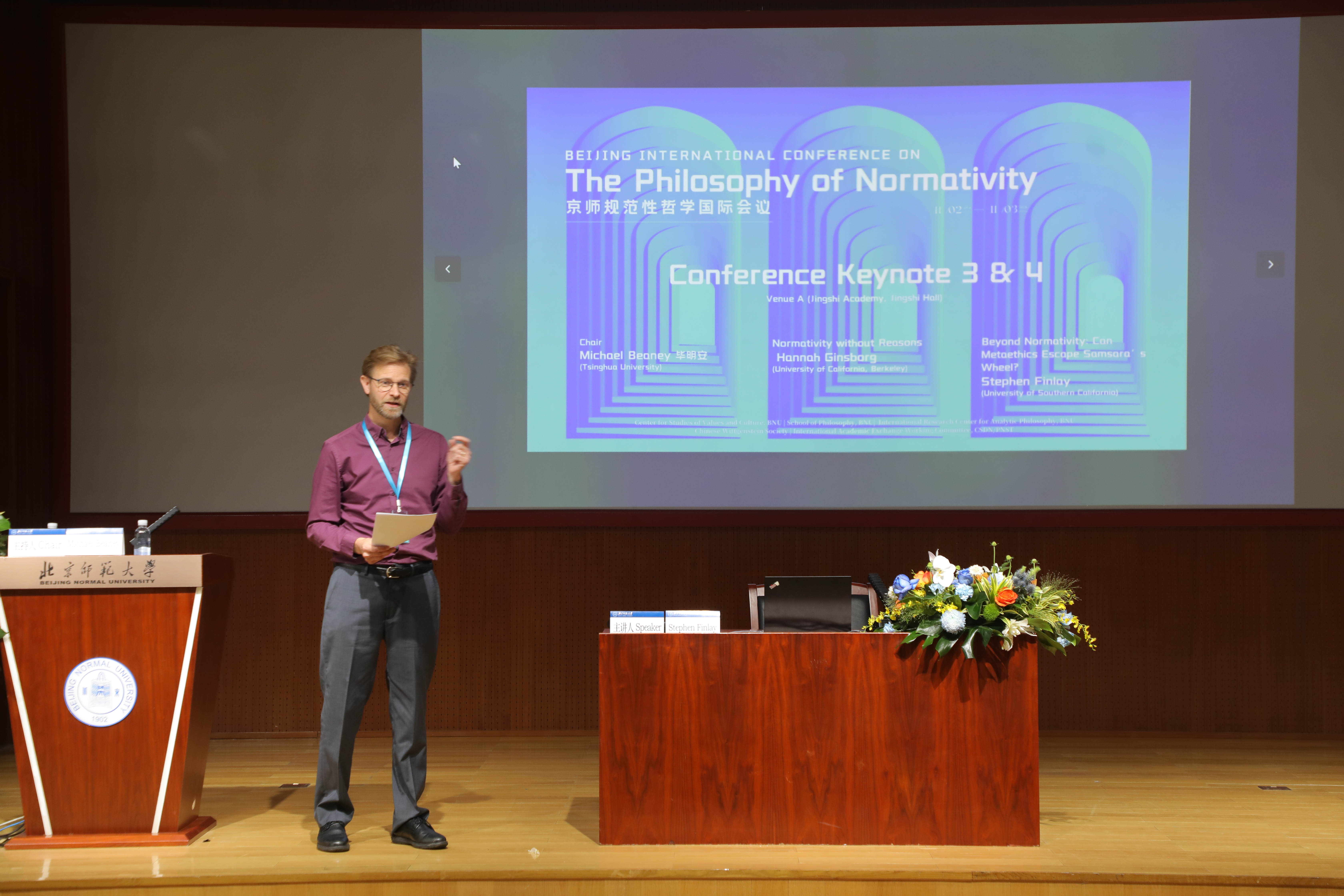
(Professor Stephen Finlay from the University of Southern California delivered a keynote presentation)
Professor John Hyman from University College London delivered a presentation titled “Frailty and Excuses.” He pointed out that excuses refer to facts or circumstances concerning a person or their situation that mitigate or entirely eliminate culpability for an action. Addressing the question of “why excuses reduce culpability,” Professor Hyman argued that attributing this effect to human frailty is unconvincing. Instead, he proposed a normative theory of excuse: excuses demonstrate that the defendant responded to exceptionally difficult circumstances in a manner consistent with appropriate norms—norms that reflect objective standards of action society is entitled to expect.
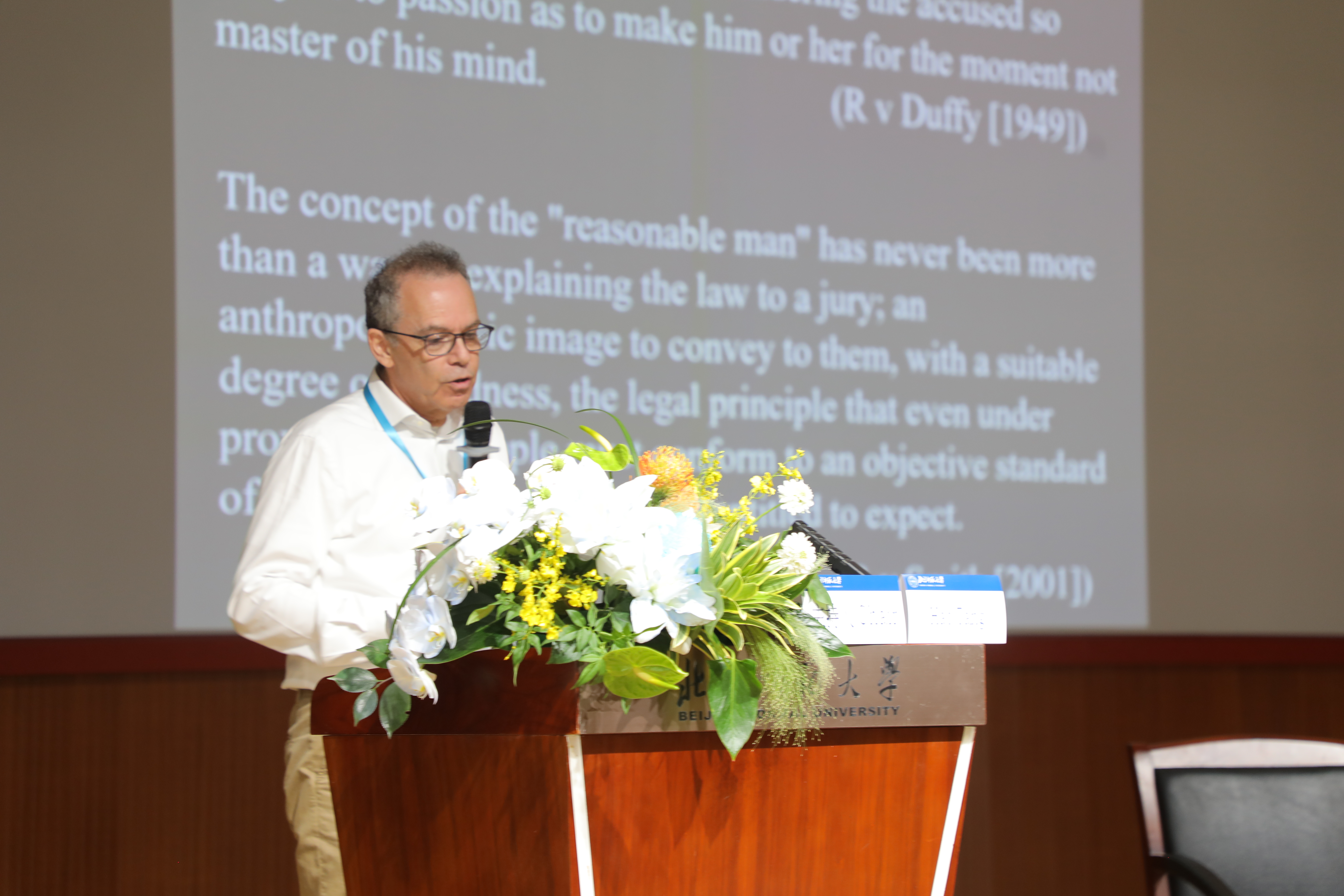
(Professor John Hyman from University College London delivered a keynote presentation)
Professor Tang Refeng from Beijing Normal University delivered a presentation titled “Against the Means-End Conception of Practical Reasoning.” She argued that the “means-end” conception does not represent Aristotle’s philosophical standpoint, and proposed a refined interpretation of Aristotelian practical syllogism, offering a new explaination of practical reasoning: practical reasoning is a form of reasoning that rationalizes action—it is designed for those who have already made choices, and thus the premises of practical reasoning necessitate the conclusion. However, in the “means-end” conception, the connection between premises and conclusion is not necessary, and its implied action-to-action model differs fundamentally from practical reasoning. Therefore, the “means-end” conception is distinct from practical reasoning.
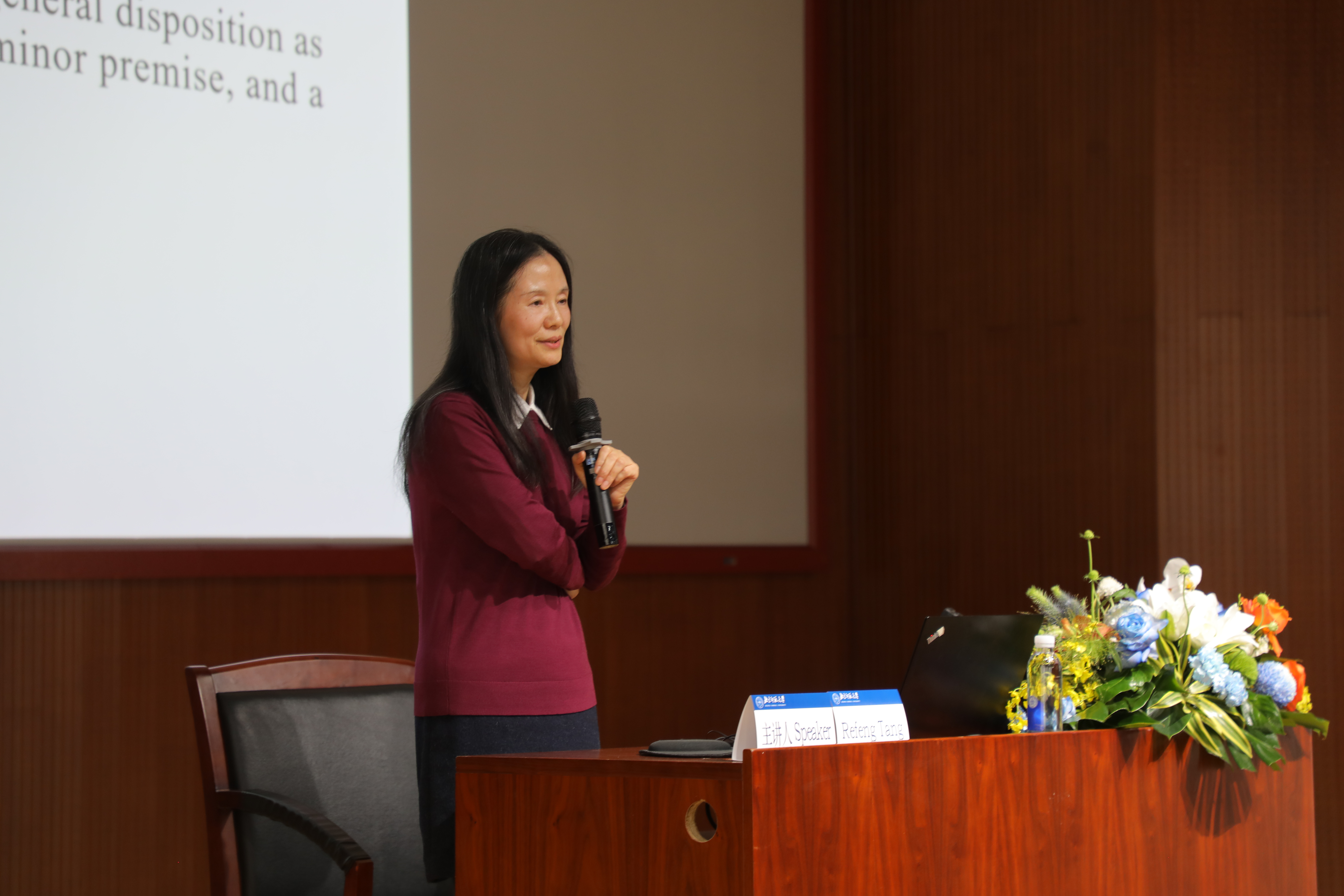
(Professor Tang Refeng from Beijing Normal University delivered a keynote presentation)
Professor Herman Cappelen from the University of Hong Kong delivered a presentation titled “Conceptual Engineering of Normative Language: Amelioration or Abandonment?” He pointed out that there exists irresolvable disagreement regarding the meaning of moral terms, to the extent that researchers lack consensus on the referents of moral language. Moreover, using moral language carries risks such as selecting non-existent properties, cognitive errors, and leading to failures in coordinating actions. Consequently, he argued that it would be preferable to abandon moral terminology altogether, replacing it with descriptions of contextual elements and their interrelations, thereby enabling discussions about the referents of moral language in a less dogmas and more pluralistic manners.
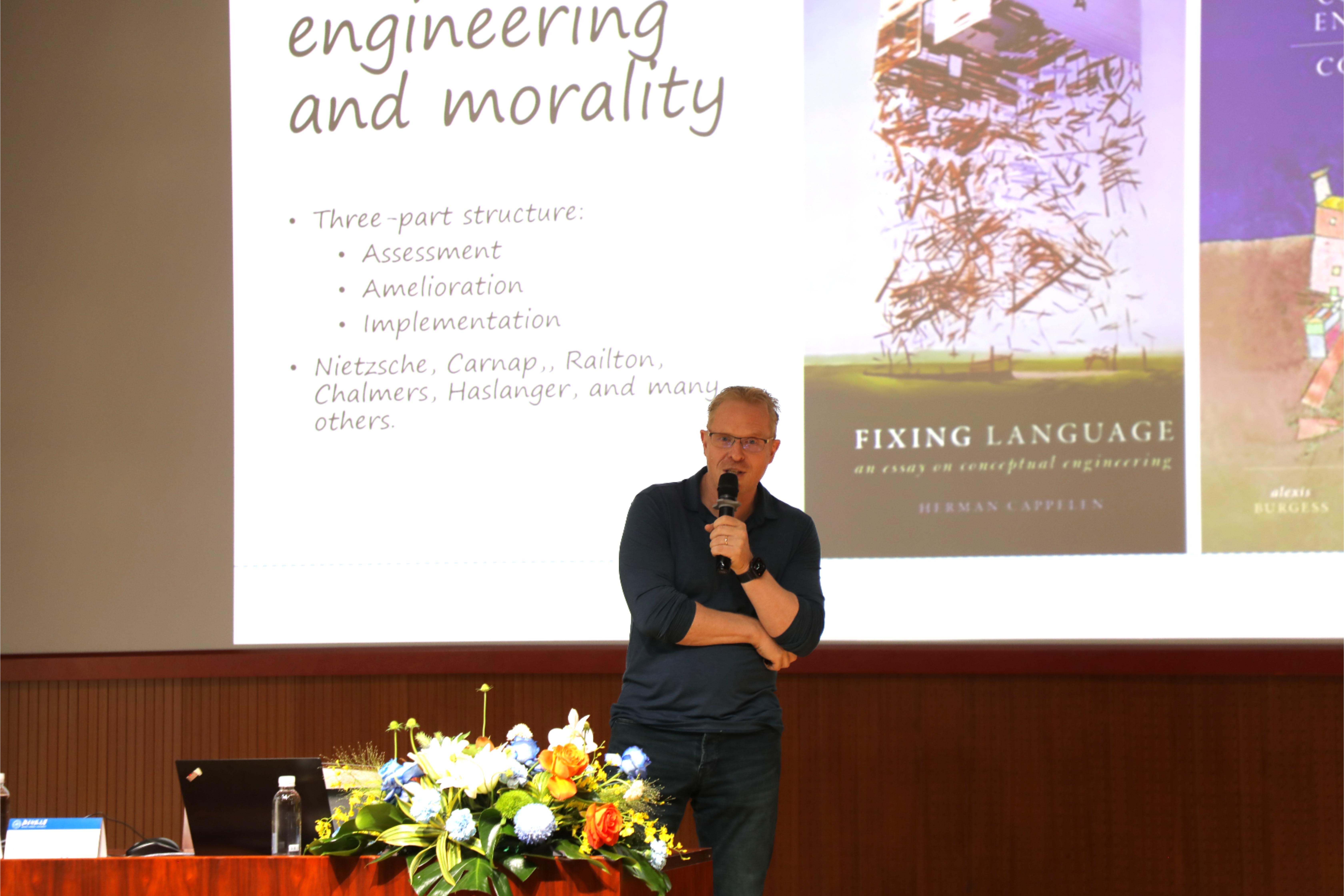
(Professor Herman Cappelen from the University of Hong Kong delivered a keynote presentation)
Professor Zhu Zhifang from Wuhan University delivered a presentation titled “Empirical Justification of Normative Statements,” pointing out that normative statements are linguistic expressions of existing or desired norms. While they can be justified through empirical methods, attempts to justify them solely through pure reason or a priori approaches would render such statements arbitrary or unreasonable. Professor Zhu argued that norms are formed and transformed through historical processes, and all norms serve as instruments for fulfilling certain human purposes. These purposes, in turn, are fundamentally rooted in human natural needs. Consequently, he maintained that normative statements, including ethical statements, can be rationally justified by scientific means but do not admit of truth or falsity.
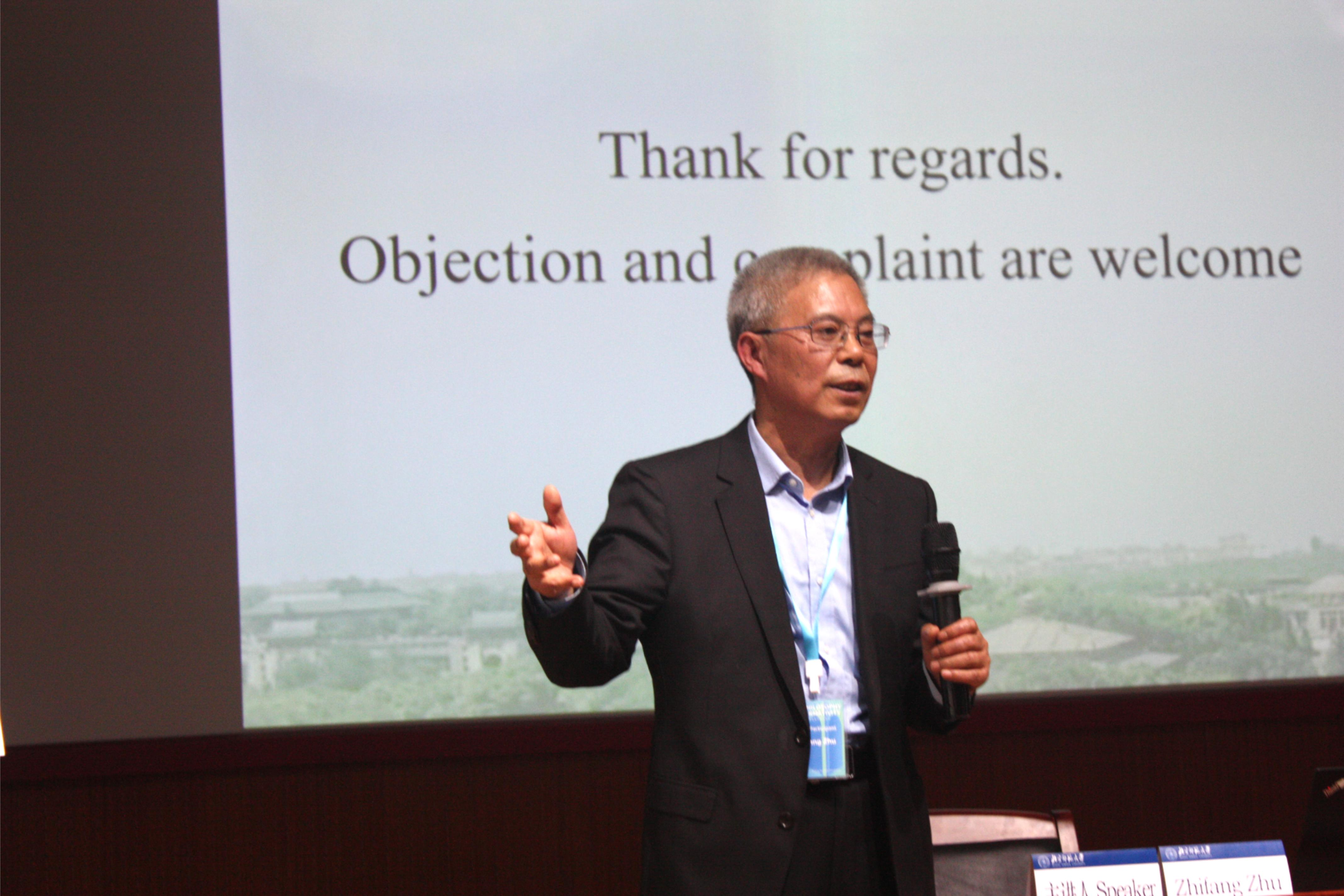
(Professor Zhu Zhifang from Wuhan University delivered a keynote presentation)
Professor Adrian Moore from the University of Oxford delivered a presentation titled “As Rational Agents, What Role Do We Play in Life?” He explored the question: when we perform good actions, is it omnipotent reason that drives us, or do we require autonomous decision-making? Professor Moore pointed out the shortcomings of Stern’s solution and, drawing on Bernard Williams’ concept of thick ethical concepts, proposed an anti-realism approach: in any given situation, when you discern what is best to do, you always employ multiple concepts simultaneously. Through this process, you make a unique contribution to what is discerned, thereby positioning yourself within the practices of life.
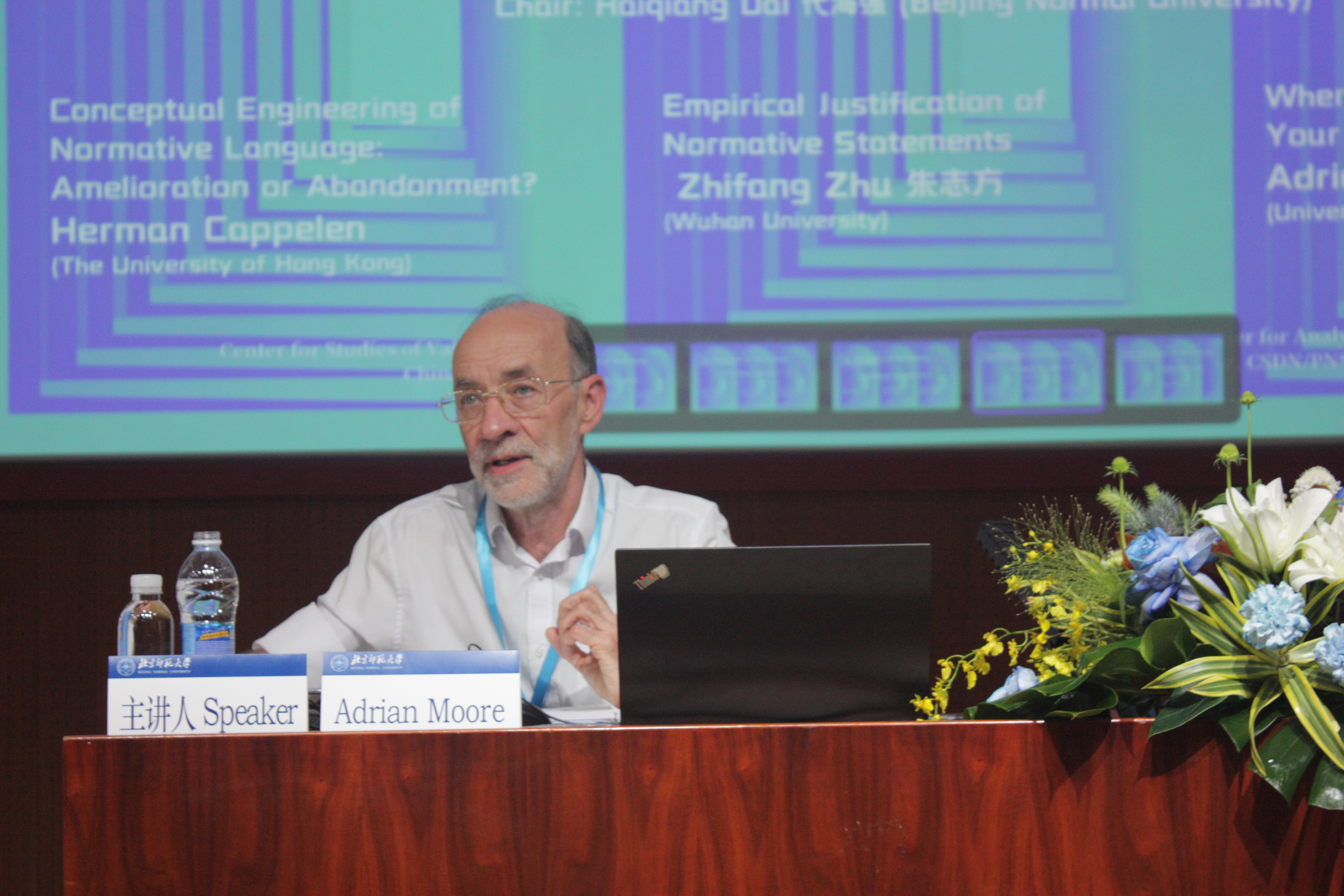
(Professor Adrian Moore from the University of Oxford delivered a keynote presentation)
The thematic presentations were equally wonderful. Scholars engaged in profound discussions on core issues of the philosophy of normativity across various domains, including metaphysics, epistemology, philosophy of language, philosophy of science and technology, philosophy of logic, philosophy of mind, Marxist philosophy, ethics, and political philosophy. In venue B, scholars including Zheng Yujian (Shenzhen University), Ryan Simonelli (Wuhan University), Dai Haiqiang (Beijing Normal University), Nan Xing (Peking University), Wang Binbin (Beijing Wuzi University), Pak Kiu Chow (UOW College Hong Kong), James Collin (VIN University), Zhao Xinkan (Peking University), Lin Lixiao (Tsinghua University), Zhou Hongyu (Heilongjiang University), Zhang Xueguang (Northwest University), Ina Goy (Beijing Normal University), Liu Ke (University of Shanghai for Science and Technology), Wang Shuai (Shenzhen University), Li Zhuoqun (University of Chinese Academy of Sciences), Hu Hao (Shenzhen University), Fabio Ceravolo (University of Leeds), Xu Jiamin and Fan Jie (University of Chinese Academy of Sciences) conducted productive dialogues on topics such as semantic normativity, epistemic normativity, and ethical normativity. In venue C, scholars including Zu Xuhua (Taiwan Chung Cheng University), Kwak Jun-Hyeok and Hua Xiaoya (Sun Yat-sen University, Zhuhai), Jérôme Pelletier (Institut Nicod), Lu Junhao (Sun Yat-sen University), Zhong Shiwen (Huazhong University of Science and Technology), Cheng Sumei (Shanghai Academy of Social Sciences), Gao Jie (Zhejiang University), Song Ziming (Sichuan University), Davide Fassio (Zhejiang University), Zhan Yiwen (Beijing Normal University), Wang Huaping (Sun Yat-sen University, Zhuhai), Long Tse (University of Bonn), Natasia Mueller (University of Duesseldorf), Brandon Yip (Singapore Management University), Zhou Huangzhengmi (Beijing Normal University), Tan Zhichen (Peking University), Xu Zhu (East China Normal University), Kevin Lynch (Huaqiao University), Zhang Hongtao (Shandong University of Arts), and Chen I-Sen (Sichuan University) delved into comprehensive and in-depth explorations of themes such as epistemic normativity, practical normativity, and moral normativity. Throughout these discussions, scholars shared perspectives, learned from one another, and collectively advanced the understanding of core issues in the philosophy of normativity.
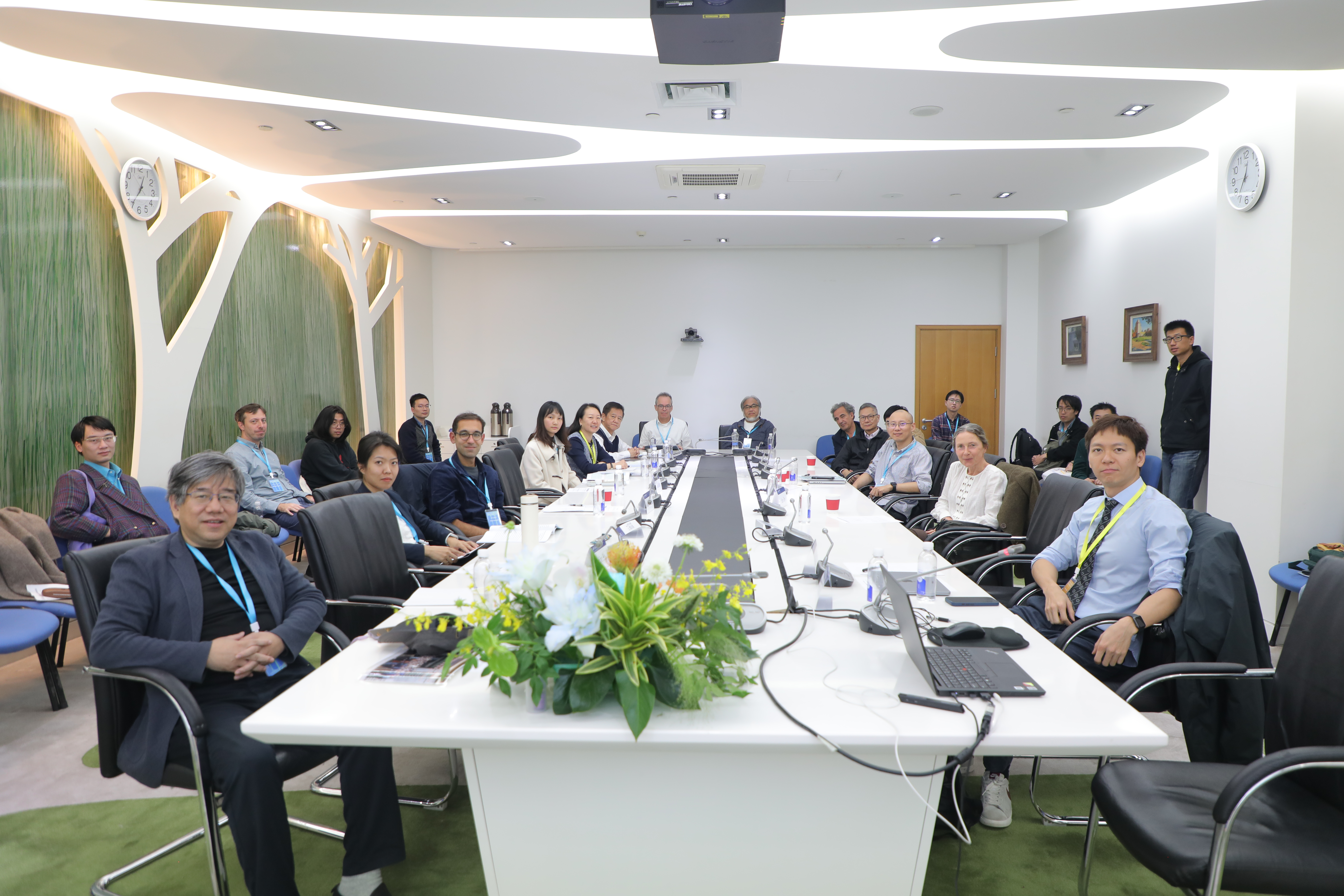
(Group photo of thematic presentations at venue B)
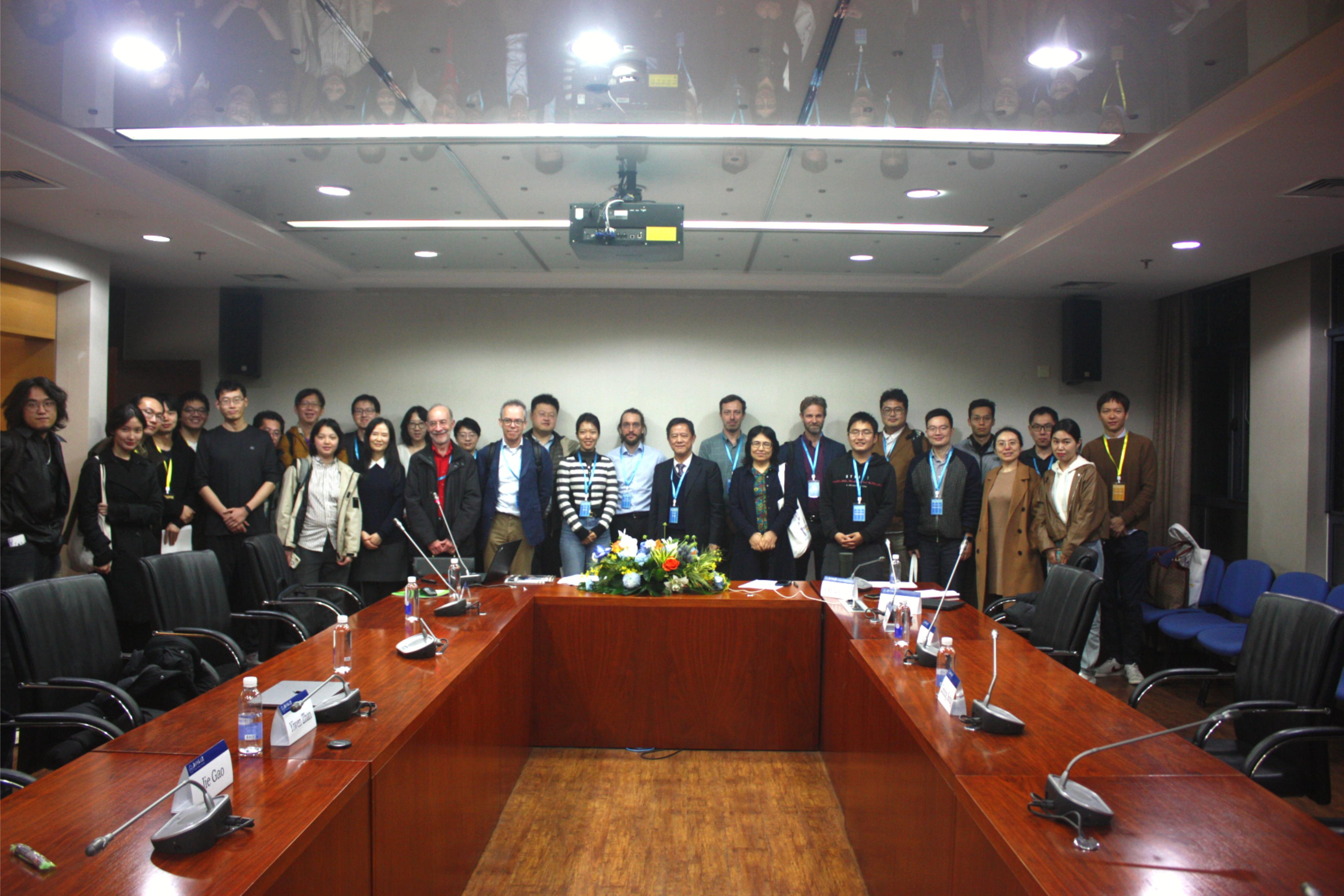
(Group photo of thematic presentations at venue C)
Beijing International Conference on the Philosophy of Normativity successfully concluded on November 3. At the closing ceremony, Professor Li Hong from Beijing Normal University delivered the closing address. She expressed gratitude to all participating scholars for contributing to this intellectual feast, and expressed hope that more scholars would engage in the philosophy of normativity research in the future, collectively advancing academic progress and development.
Copyright 2020. All Rights Reserved Record No. Beijing ICP Ready





 Tel:010-58802001
Tel:010-58802001  Fax:010-58802001
Fax:010-58802001  E-mail:philoffice@bnu.edu.cn
E-mail:philoffice@bnu.edu.cn Address :19 Xin Jie Kou Wai St., HaiDian District,Beijing 100875, P. R. China 8th. Floor. Front Main Building
Address :19 Xin Jie Kou Wai St., HaiDian District,Beijing 100875, P. R. China 8th. Floor. Front Main Building
